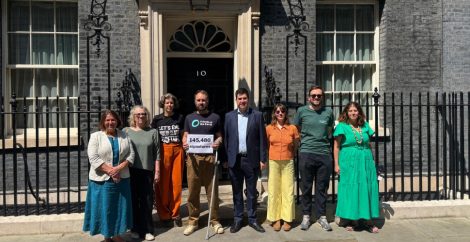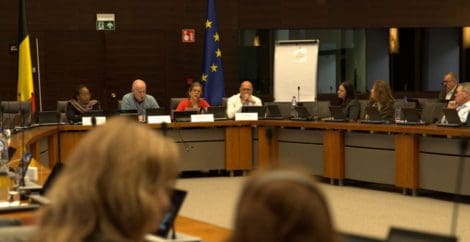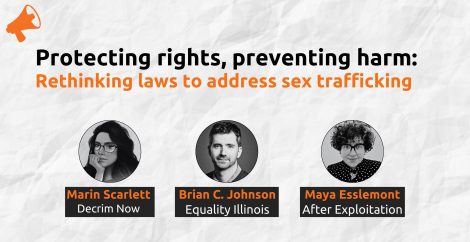As families across the UK dig out their blankets and baskets during National Picnic Week, Freedom United with the Corporate Justice Coalition is serving a different kind of meal to 10 Downing Street and the Department of Business and Trade: a symbolic “hamper of harms”. Why? Because exploitation is no picnic. From exploitative child labor in cobalt mines powering electric cars, to Uyghur forced labor in the cotton woven into our clothes, to the poverty wages behind the tea in our mugs and the berries on our plates—harm to people and the planet is embedded within everyday goods
Speak free
What we're talking about right now.
Addressing modern slavery through the rescue model
“When someone is in trouble, the hope is that they will be rescued.” Right? When academic Dr Pankhuri Agarwal wrote this statement in The Conversation, she was in fact exposing that her modern slavery research contradicts this long-held belief.[1] A quick search will show countless nonprofits around the world leading with a rescue model. That’s to say their approach is to find people living in conditions of modern slavery and pay their “slave-holder” for their release, often appealing for donations in the process. Examples of rescue model nonprofits include the controversial
Europe’s Anti-Slavery Forum links economy to continued exploitation
The role of business and our economic system in perpetuating modern slavery received unprecedented attention from anti-trafficking experts last week. Speakers from nonprofits, business and government joined together at the 2025 Europe Freedom from Slavery Forum, organized by Free The Slaves and hosted by the Belgian Ministry of Foreign Affairs. Increasing supply chain transparency is important. However during the event it was clear that it has failed to reduce extreme exploitation, which instead is on the rise. I witnessed, for the first time, multiple panellists highlighting the
5 books to check out on World Book Day
Books do more than just tell stories—they open doors into lives we might never otherwise see. This World Book Day, my colleagues and I are celebrating the joy of reading. We also want to highlight books that challenge us, that confront harsh realities, and that tell the truth. So, we’re sharing our book recommendations for folks who want to learn more about modern slavery. Around the world, over 50 million people are trapped in forced labor, sexual exploitation, and human trafficking. These are not just numbers; they are people with names, dreams, and voices often silenced by modern
Watch Freedom United’s webinar: Rethinking laws to address sex trafficking
March 19, 2025, Online Event The conversation around sex trafficking and modern slavery has never been more urgent. With legislative changes underway in both the US and the UK, Freedom United invites you to watch our online panel event, "Protecting rights, preventing harm: Rethinking laws to address sex trafficking”. The discussion comes at a crucial moment. Illinois is on the cusp of making history in the US. It could be the first state to decriminalize sex work and so strengthen protections against trafficking for sexual exploitation. A newly introduced bill offers a shift in







-
Follow us on Facebook
5.6M
-
Follow us on Twitter
32K
-
Follow us on Instagram
8K
-
Subscribe to our Youtube
5.7K
Donate